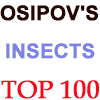Actual ranges may, in many cases, be more expansive than noted. There are some species indicated that may now be extirpated.
Clicking on a scientific name will take you to a file with pictures and/or information.
I supect that there are Dryocampa rubicunda, Anisota virginiensis, Actias luna, Antheraea polyphemus, Callosamia promethea and Hyalophora cecropia populations in all counties.
Non-member Michelle Chapman reports Antheraea polyphemus
from Barrington (Stafford County), confirmed with image of mature
larva on September 22, 2003.
Non-member John Motta reports Actias luna in Chester, Rockingham County,
June 22, 2007.
Non-members Henry and Travis Pozzetta report Antheraea polyphemus in Hillsborough County with image of moth that emerged March 26, 2004, from cocoon stored indoors of a larva found fall of 2003.
Non-member Andrew Kohn, Mount Washington Valley Area, Carroll County, May 19, 2004, writes, "As far as the luna, polyphemus and cecropia in my area are concerned, they are plentiful at lights and have been for twenty-five years. Promethea have all but vanished in the last ten years."
June 12, 2004, non-member Jonathan R. Brady writes, "Center Sandwich is in Carroll County, NH...center of the state, right on the southern edge of the White Mountains. In casual observing I usually see wild lunas every spring and the occasional cecropia and polyphemus. However, when I place reared female cecropias and polyphemus out in mating cages I've not had any problems attracting an abundance of males. A couple of summers ago I was picking blueberries (highbush) and came across a very healthy, final instar cecropia caterpillar. No experience yet up here with the io or promethea so if you have any available ova it will be interesting to see if any adult females that I can get to survive until next spring will attract any local wild males."
Deb Lievens has recently sent images and flight data for several species from Grafton County and Rockingham County:
Dryocampa rubicunda, Thornton, Grafton Co., May 25 - June 7.
Antheraea polyphemus, Thornton, Grafton Co., June 8
Actias luna, Thornton, Grafton Co., June 7 - July 14
Callosamia promethea, Thornton, Grafton Co., June 8 - July 14
Dryocampa rubicunda, Londonderry, Rockingham Co., May 26-30.
I suspect at least a partial second brood in each of those two counties.
Antheraea polyphemus, Londonderry, Rockingham Co., July 18 - August 8.
Callosamia promethea, Londonderry, Rockingham Co., May 30
Hyalophora columbia, Grafton County, New Hampshire, May 31, 2012
Jim Beaumont reports an unusally early flight of luna in warm spriong year of 2010, with a gravid, almost empty female taken May 9, 2010.
Return to State by State Listings
Goto to Main Index
Visit New Hampshire Sphingidae
Visit New Hampshire Catocala

|
 Support this website and visit other insect sites by clicking flashing butterfly links to left or right. |

|